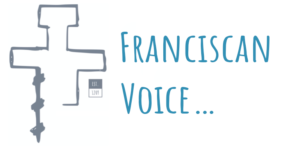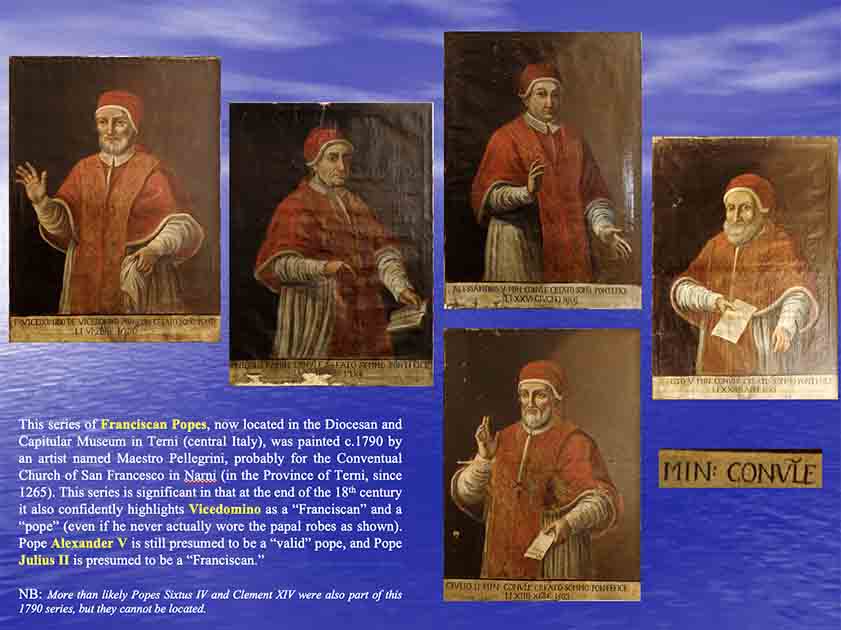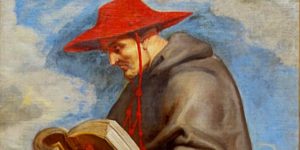Franciscan Popes - Part 2
An excerpt from a presentation by friar Joseph Wood OFM Conv.
(To read the introduction to this series, click here.)
Born in Piacenza, Italy, and probably a nephew or cousin to Pope Gregory X who created him a Cardinal in 1273, Vicedomino may have been the “first” Franciscan Pope 12 years before Nicholas IV had he lived long enough to have been crowned.
Vicedomino had been a married man with two children. After his wife died, he took orders and by 1241 he was a Canon of the Cathedral of Clermont, France. He held many diplomatic positions in service to the Count of Provence and Charles of Anjou, King of the Two Sicilies, and was well respected by both. Vicedomino was created Archbishop of Aix in 1257. He held the title of Cardinal-Nephew (Secretary of State) during Gregory X’s reign. Tradition tells us that Vicedomino was elected during the third conclave in the same year (in Viterbo, a papal residence at the time) on September 5th and chose the name “Gregory XI,” but because he died within hours of his election, on September 6th, and because he was never crowned, he therefore is not listed as an official pope.
What happened on September 5th & 6th in 1276?
To try to understand what really happened on the 5th and 6th of September 1276, we need to analyze the history of those days. Pope Gregory X was able to keep Charles of Anjou, King of the Two Sicilies, at bay with respect to many of his demands. But with Gregory’s death, Charles worked hard to insert himself into the decisions of the new conclave. Pope Innocent V, a Frenchman, was elected, but died within five months. Thus, when the 12 cardinals gathered in Rome for the second conclave, Charles tried to intervene again.
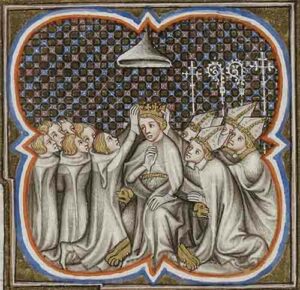
As a Senator of Rome, Charles saw himself as the guardian of the conclave, and therefore he reduced their food rations trying to push forward a favorable candidate of his own. The Italian cardinals were very upset about this interference and thought they would choose a transitional pope, one that was old and sick (on death’s doorstep), who could keep Charles of Anjou contented until they could confirm the election of a stronger candidate able to oppose him.
Adrian V was thus elected. He travelled to Viterbo to handle issues personally between the Holy Roman Emperor Rudolf and King Charles, but he died after only 39 days. Thus, contrary to modern historians who may lack an appreciation of the political motives of wanting to choose a short-term pope (documentation or not), Vicedomino would fit such a bill quite well (again). He was in poor health, elderly, meek, humble, and was also esteemed by Charles of Anjou. It therefore seems very probable that he was the best candidate for the new (short-term) papacy.
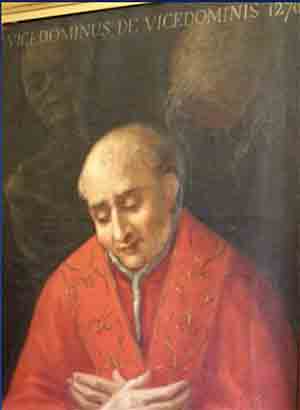
It seems likely that Vicedomino, once elected, asked for a pause for reflection. And because of such a pause, and because of his sudden death, one day later, no official proclamation of his election was ever made. And because of the proximity of Charles to Viterbo, in all probability the cardinals decided at this frustrating juncture to push ahead to elect a healthier and long-term pope. The choice, John XXI, a Portuguese doctor, may have commended himself with the other cardinals because of his care for Vicedomino on his deathbed, especially since we know that the powerful Cardinal Orsini also promoted his election. (NB: John XXI reigned for less than a year himself).
Because Vicedomino’s election cannot be proven with historic documentation, some modern historians believe it was a myth. One way or another, the mess of history and the mess of the four conclaves in one year all admit to the moral character of Vicedomino, which will remain something worthy enough for our admiration and esteem, elected or not.
The next Franciscan Pope was Nicholas IV.
